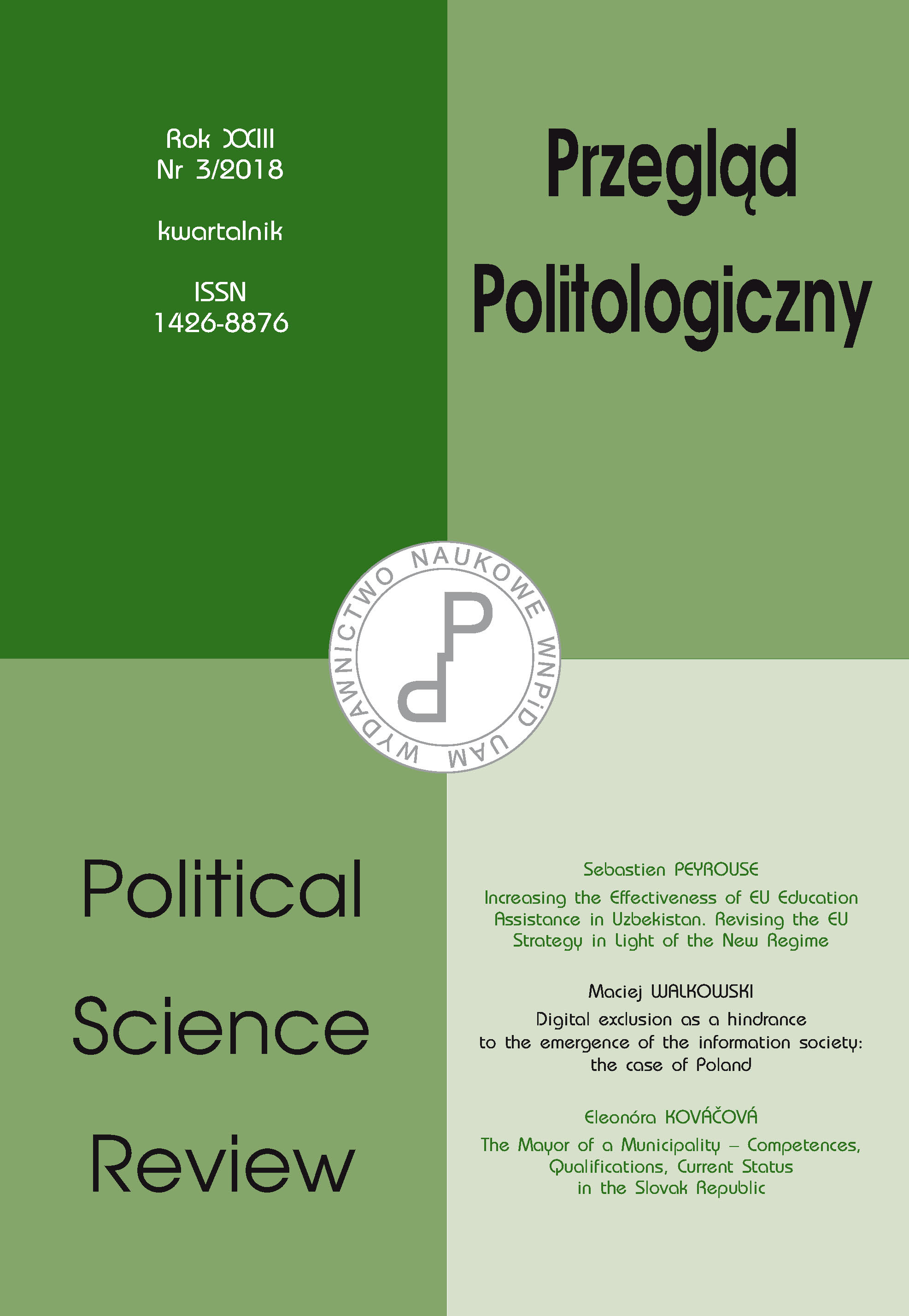Digital exclusion as a hindrance to the emergence of the information society: the case of Poland
Digital exclusion as a hindrance to the emergence of the information society: the case of Poland
Author(s): Maciej WalkowskiSubject(s): Politics, Public Administration, Public Law, Sociology
Published by: Uniwersytet Adama Mickiewicza
Keywords: digital exclusion; social media; E-commerce; Internet; GDP; socio-economic development; globalisation
Summary/Abstract: There is no doubt, that digital transformation (knowledge-based transformation) has emerged as the crucial megatrend in modem civilization. Artificial intelligence (AI), machines and autonomous vehicles, the Internet of Things (IoT), financial technology (Fin/Tech), smart investing and the analysis and processing of big data are the most recent manifestations of this trend, but not the only ones. All of these phenomena have led to the emergence and continuing development of the so-called ‘Information Society’ (IS), which refers to a new type of social organization that is clearly distinct from the earlier forms of society. In this new society, information and knowledge play an essential role in facilitating the Knowledge-Based Economy (KBE), where information is collected, transmitted and processed in a faster and more effective manner, and can subsequently be used to foster accelerated economic growth. Unfortunately, the problem of digital exclusion still occurs, also in Poland. The author in the conclusion comes to opinion that people who are digitally excluded find it much more difficult to overcome psychological rather than technical barriers to having access to the Internet and learning basic computer skills. This situation calls for urgent improvement. In the modern information society, a lack of basic knowledge about computers translates into partial or total digital illiteracy and makes it difficult to perform a range of everyday tasks. It is therefore essential in Poland to prevent digital exclusion. People who do not use the Internet are socially and professionally limited, or virtually handicapped, which results in quantifiable economic losses. This translates to lower creativity and innovativeness and reduced revenue of state budget, and impedes the competitiveness of the economy and the development of a post-modern, post-industrial social model. The main research goal is to show the causes of the phenomenon of digital exclusion in Poland and ways to counteract it. In the course of the research, the most frequently used method was causal and effect analysis as well as institutional and legal analysis. Elements of the decision-making, historical, comparative and statistical methods were also used.
Journal: Przegląd Politologiczny
- Issue Year: 2018
- Issue No: 3
- Page Range: 167-180
- Page Count: 16
- Language: English

